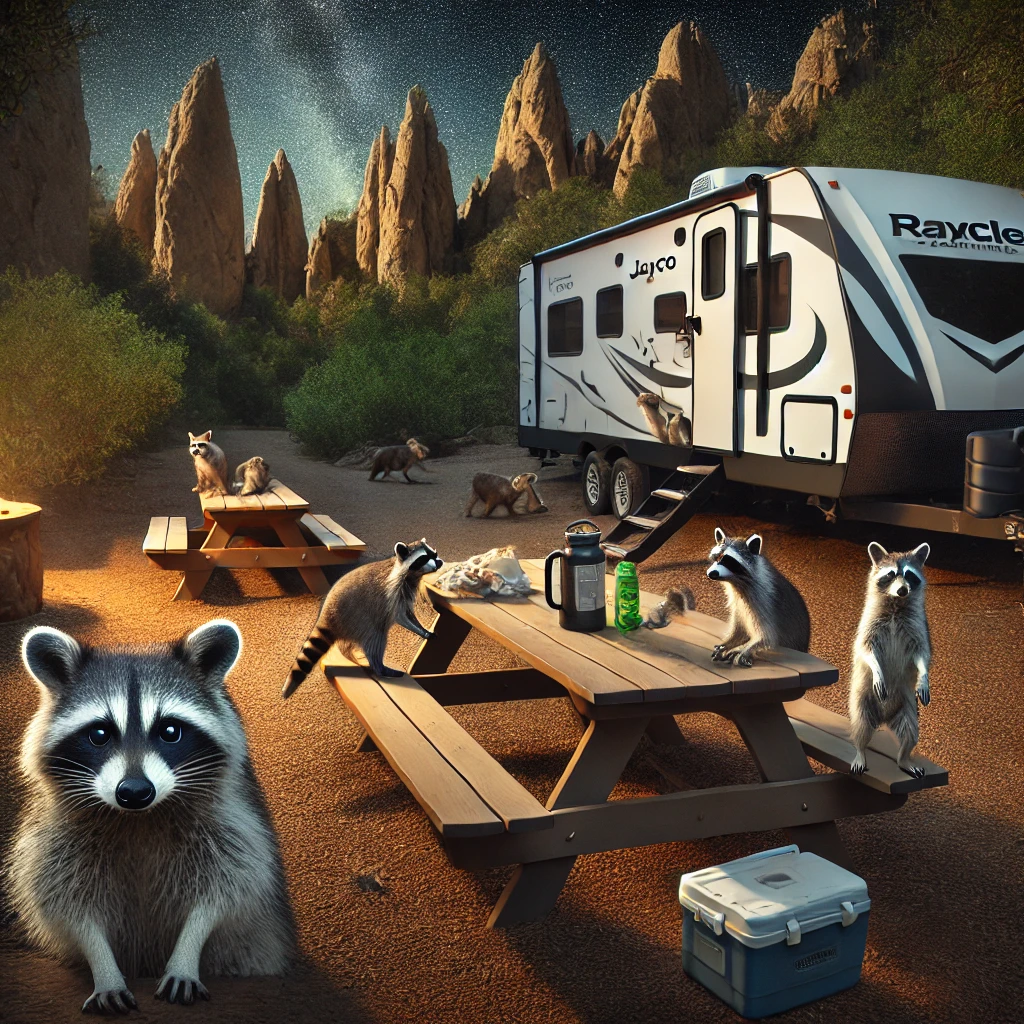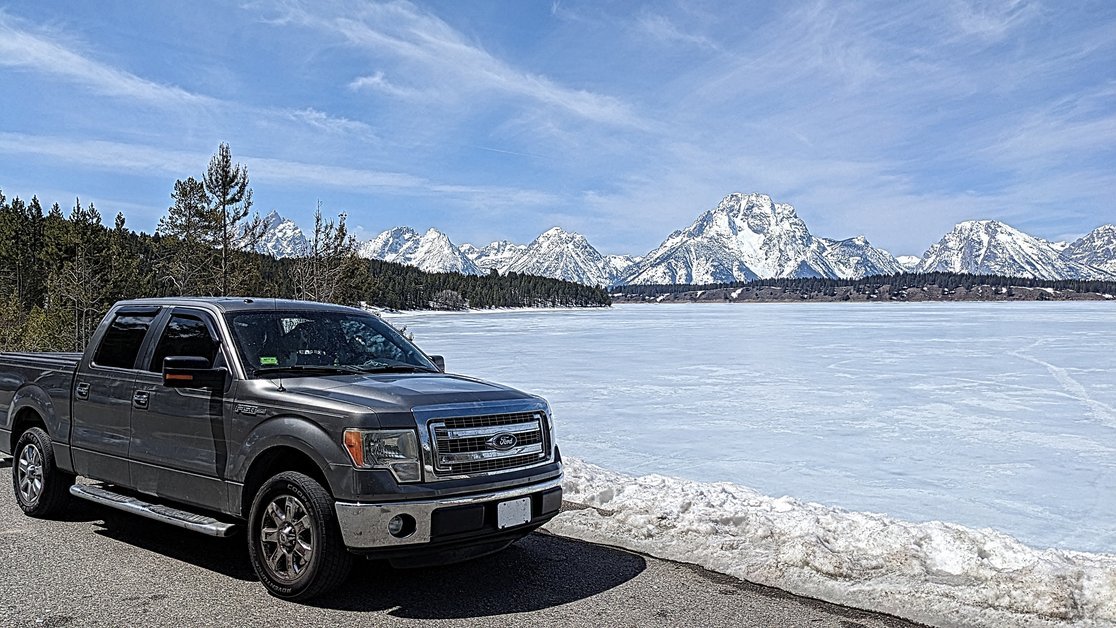During a warm summer’s night at Pinnacles National Park, the serene ambiance of nature has been disrupted by something more alarming than the typical rustling of raccoons. These nocturnal creatures are not just scavenging—they’re also fighting amongst each other, making the night even more chaotic for campers. Even more unsettling, some raccoons have become so bold that they’ve taken to climbing onto picnic benches, brazenly approaching people who are trying to enjoy their evening, forcing them to shoo the persistent animals away.
Understanding Raccoons: The Bandits of the Night
Raccoons (Procyon lotor) are medium-sized mammals known for their distinctive black “mask” across their eyes and their dexterous front paws. These animals are incredibly adaptable, found in forests, urban areas, and, as we’ve discovered tonight, national parks like Pinnacles.
- Diet: Raccoons are omnivores, meaning they eat a wide variety of foods. In the wild, their diet includes fruits, nuts, insects, small animals, and even fish. However, in campgrounds, they’re notorious for scavenging human food, making them the ultimate campsite raiders.
- Behavior: Raccoons are primarily nocturnal, meaning they are most active at night. This is why campers often hear them rummaging through trash or food supplies after dark. They are highly intelligent animals, known for their problem-solving skills, especially when it comes to opening containers or getting into places where food is stored.
- Habitat: Raccoons can live in various habitats, from forests to marshes to urban environments. At Pinnacles National Park, they thrive due to the availability of natural food sources and, unfortunately, the occasional human-provided meal.
The Raccoon Problem at Campgrounds
Raccoons have become a significant concern for campers at Pinnacles National Park and other popular camping spots. Their boldness often leads them to explore campsites, searching for easy meals. When food is left unattended or improperly stored, raccoons will seize the opportunity, leading to messy campsites and potential health risks for both humans and wildlife.
- Health Risks: Raccoons can carry diseases such as rabies and leptospirosis, which can be transmitted to humans and pets through bites, scratches, or contact with their feces. Additionally, raccoon droppings may contain roundworm eggs, which can cause serious infections if accidentally ingested.
- Environmental Impact: Feeding raccoons, whether intentional or not, can alter their natural behaviors. They may become overly dependent on human food, leading to increased encounters with humans and potentially dangerous situations.
Protecting Your Campsite from Raccoons
Given their persistence and cunning, protecting your campsite from raccoons requires some preparation and vigilance. Here are some tips to ensure that your camping experience remains raccoon-free:
- Secure Your Food: Store all food, coolers, and scented items (like toiletries) in bear-proof containers or locked vehicles. Never leave food unattended, especially overnight.
- Clean Up Immediately: After cooking or eating, clean up any food scraps, grease, or leftovers. Dispose of trash in designated raccoon-proof bins.
- Use Lights and Noise: Raccoons prefer the cover of darkness, so keeping a well-lit campsite or using noise-makers can deter them from approaching.
- Avoid Feeding Wildlife: Never feed raccoons or any other wildlife. It’s not only dangerous for you but also disrupts the animals’ natural behaviors.

Raccoon Encounters: What to Do
If you encounter raccoons at your campsite, it’s important to stay calm. Raccoons are generally more interested in your food than in you. Here’s what you can do:
- Don’t Approach: Raccoons can become aggressive if they feel threatened. Keep a safe distance.
- Make Noise: Loud noises can scare raccoons away. Clap your hands, bang pots, or use a whistle.
- Use Light: Flashlights or headlamps can startle raccoons and encourage them to move along.
- Report the Incident: If raccoons are a recurring problem at your campground, report it to the park rangers. They can provide additional guidance and take steps to manage the situation.
What This Means for Campers
For those unaccustomed to raccoon behavior, tonight’s events might be unsettling. Seeing these animals fight amongst themselves and boldly approach picnic areas can turn a peaceful evening into a tense encounter. Here’s what you need to know and do if you find yourself in a similar situation:
- Stay Alert: If raccoons are actively fighting or becoming aggressive, it’s important to stay alert. Keep an eye on your surroundings and ensure that food and scented items are securely stored away.
- Use Deterrents: If raccoons are getting too close, using noise or lights can help deter them. Consider bringing a portable, battery-operated lantern or a whistle to scare them off.
- Don’t Engage: While it might be tempting to shoo raccoons away, it’s crucial to remember that they are wild animals and can be unpredictable, especially when stressed or fighting. Avoid physical contact and try to keep a safe distance.
- Report Unusual Behavior: If the raccoons are becoming excessively bold or aggressive, report it to park rangers. They can provide guidance and may take steps to manage the wildlife more effectively.
The Raccoon Experience: A Lesson in Coexistence
While the raccoons at Pinnacles National Park are providing more excitement than some campers might have bargained for, this experience offers a valuable lesson in the reality of camping in nature. Wildlife encounters, whether peaceful or chaotic, remind us of the delicate balance between humans and the natural world.
The raccoons’ boldness tonight is a direct result of human influence—whether through improper food storage, feeding wildlife, or simply the presence of people in their habitat. As campers and visitors to national parks, it’s our responsibility to minimize our impact on the environment and ensure that our interactions with wildlife are as safe and respectful as possible.
So, as we wrap up this wild evening at Pinnacles National Park, let’s reflect on the importance of being prepared, staying vigilant, and respecting the wildlife that calls these beautiful places home. Whether it’s a peaceful night under the stars or a chaotic encounter with raccoons, every experience adds to the richness of outdoor adventures.




